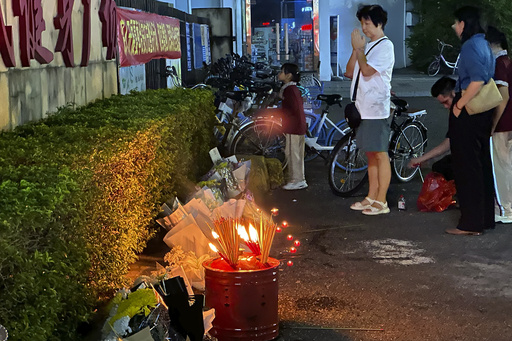
BANGKOK — Following a series of disturbing violent incidents, Chinese leader Xi Jinping has instructed local authorities to take action to prevent any future occurrences of such grave attacks. This directive comes in response to a rise in mass assaults across the nation, emphasizing the need to curb what have been termed “extreme cases” of violence.
The incidents in question, where individuals use vehicles or knives to target bystanders, are not entirely new to China, but the recent upsurge has sparked significant concern. Local officials are pledging to investigate a variety of personal grievances that could lead to acts of violence, encompassing issues like marital conflicts and inheritance disputes.
However, the broader implications of this increased scrutiny into personal matters are causing alarm, particularly as the Chinese government has already enhanced its control over many facets of life in the country. These attacks, often described as “revenge on society crimes,” reflect a more pressing societal sentiment of distress and frustration.
In just November, three high-profile incidents shook the nation: a man injured 30 individuals in a Hunan elementary school following financial losses, a vocational school pupil killed eight peers after failing an exam, and a divorce-related assault left 35 people injured in Zhuhai as a man drove into a crowd. While motives for such violent acts are difficult to pinpoint, experts suggest that underlying socio-political pressures within Chinese society may contribute significantly.
According to Wu Qiang, a former political science professor, the common thread among those committing these acts is a profound sense of injustice and societal unfairness. Since 2015, Chinese authorities have taken a hard line against civil rights lawyers and non-profit organizations, resulting in many arrests and stifling civil society activities that had emerged in the early 21st century.
Efforts to suppress information about these violent events have intensified. In the past, media outlets reported on developing situations, including identifying suspects; however, state censorship has tightened significantly. Less than a day after the Zhuhai attack, videos and eyewitness accounts were swiftly removed from social media. Furthermore, updates on the Hunan school assault were disclosed only after a court ruling, a month later.
While the U.S. has seen significant instances of mass killings, with reports indicating 38 such cases this year, a lack of transparency in China presents challenges in tracking similar trends. Rose Luqiu, a former journalist, points out a stark difference in current discussions surrounding violence; while the early 2000s focused on addressing underlying causes, the present climate is driven by a desire for censorship intended to minimize imitation of violent acts.
In light of recent events, Xi Jinping has urged local governments to take proactive steps against violence by addressing the root causes of conflicts. Various government officials have echoed similar sentiments, promising to investigate grievances concerning family issues, financial disputes, and social conflicts.
However, many experts, including Lynette Ong from the University of Toronto, have voiced concerns about the implications of such measures. The ongoing scrutiny and pressure placed on community structures to manage interpersonal conflicts may lead to a counterproductive cycle of repression and societal unrest, reminiscent of strict COVID-19 shutdown policies. If unreasonable measures are implemented, it could incite public backlash, further exacerbating grievances and fueling violence.
As the Chinese government continues to grapple with rising violence, concerns about the lengths to which it will go to maintain control remain high. The potential for escalating measures only adds to the tension already felt within the society and raises questions about the efficacy of such an approach in dealing with deeply rooted issues.

